Perhaps your area has been experiencing frequent blackouts, or you are planning a camping experience. Are you wondering what generator size you will need to run a 5000 BTU air conditioner? We talked to the experts, and these are our findings.
Your air conditioner's Energy Efficiency Ratio (EER) will determine the size of generator you will need to run it. The higher the EER rating, the more efficient the unit is, and consequently, the fewer the watts required to run the AC.
Typical 5000 BTU EER ratings range between 7 and 12. You will need a generator with about 500W to run a 5000 BTU AC with 12 EER. Alternatively, if the AC has a 7 EER rating, you will need a generator with around 800W.
Keep reading to learn how to calculate the specific generator size you will need to run your AC. We will also discuss the room size a 5000 BTU air conditioner can serve and ways to improve your AC's efficiency.
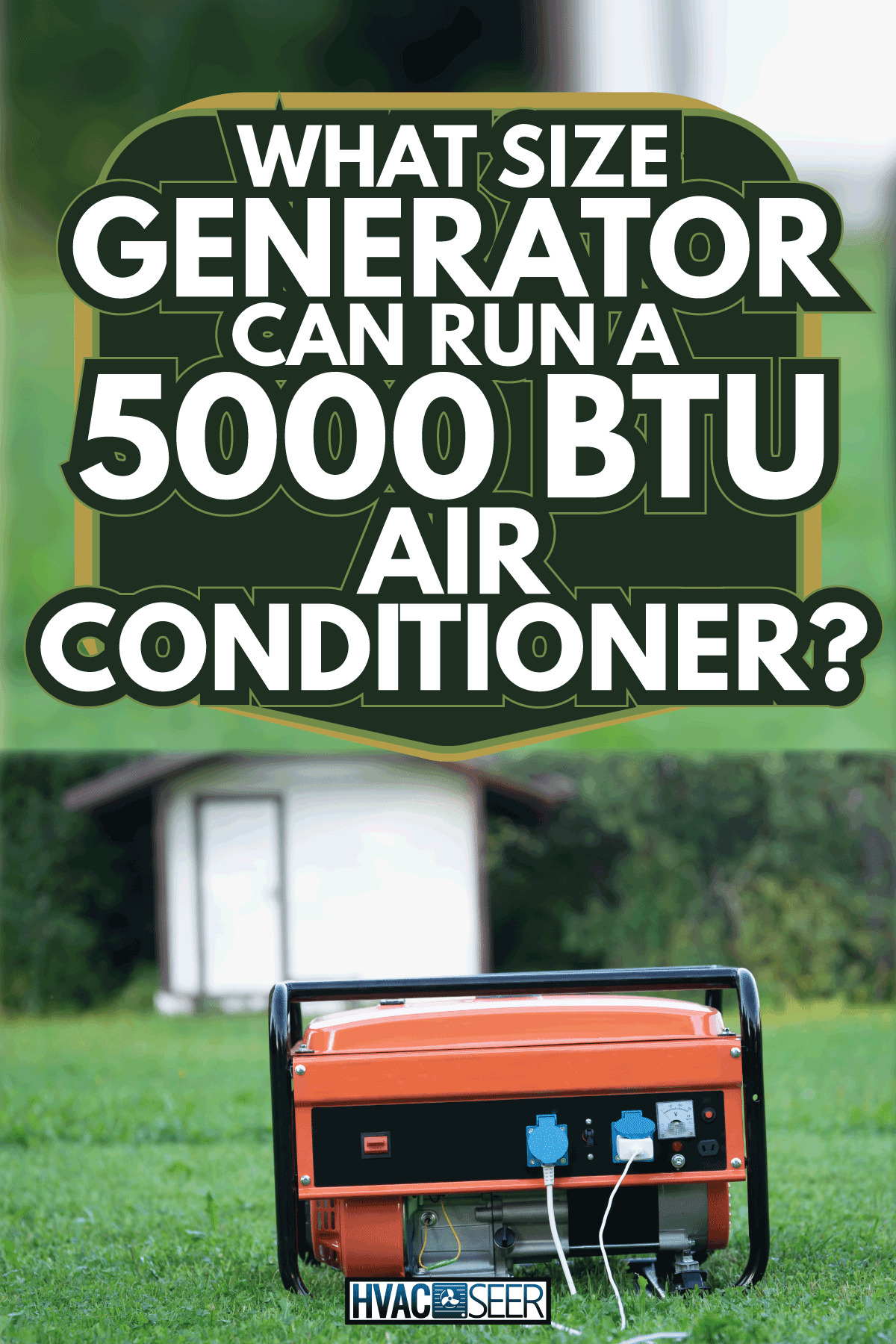
Generator Size to Power a 5000 BTU Air Conditioner
An AC requires power to run. For this reason, you may need a backup solution if you will be traveling to an area outside the power grid or if there is scheduled maintenance for the power lines in your local area.
A generator can save the day, even though it is a rather costly way to keep the AC running.
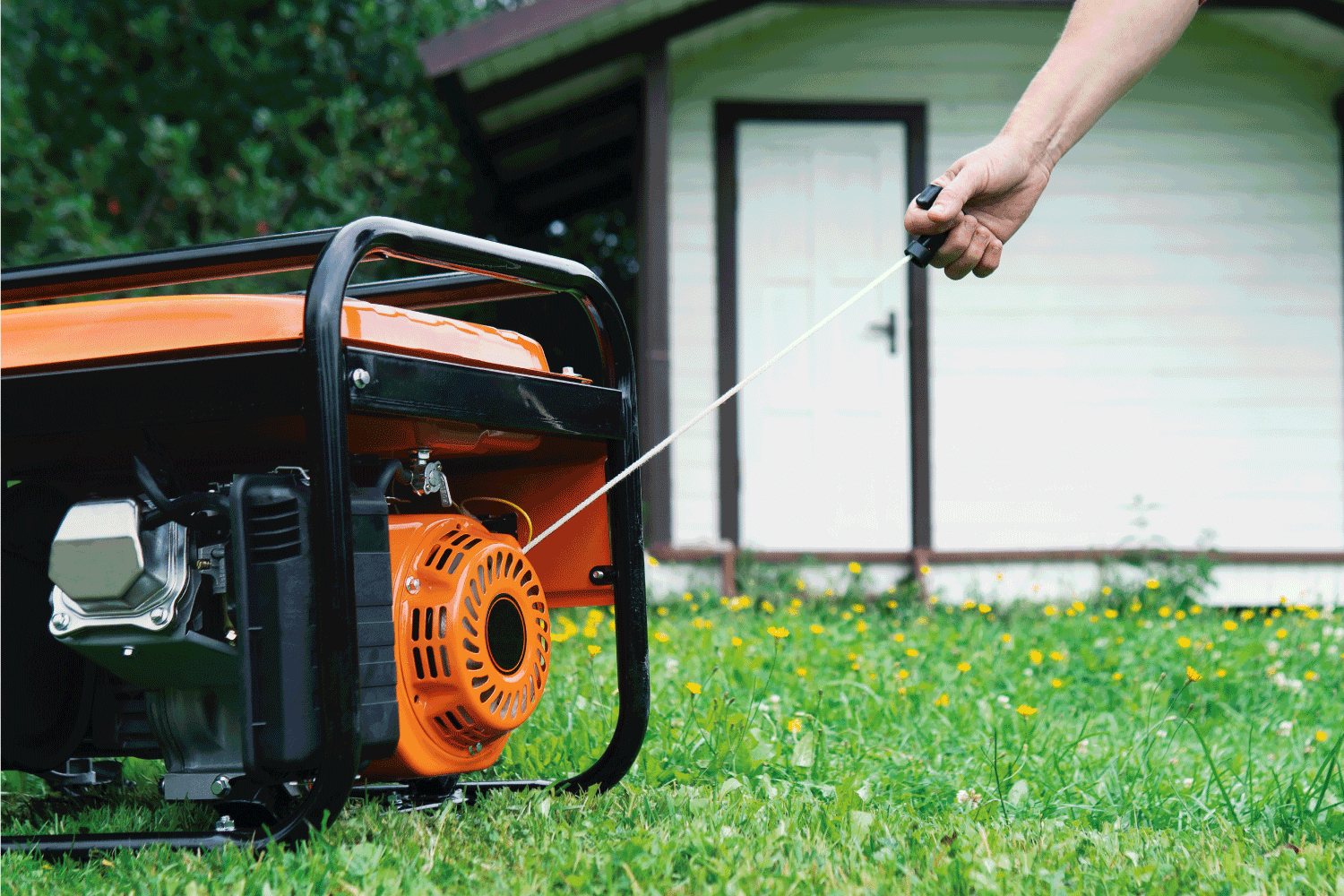
Calculating the Right Generator Size
The AC's wattage, size, and efficiency will influence how big a generator you will need to operate your appliance.
In addition, you will need to consider the local climatic conditions where you live or at your travel destination. You should also consider how long you will run the generator in a day.
Power Consumption
To calculate the generator wattage required to operate your AC, divide the AC's BTU by its EER.
Formula: AC BTU ÷ AC EER = Generator size (In Watts)
The BTU measure indicates the quantity of energy required to remove heat from your home within an hour. On the other hand, the EER rating measures how efficiently the AC functions at specific outdoor temperatures.
The efficiency of your air conditioner and the number of watts required to run it are inversely related. Therefore, you will need fewer units to operate a more efficient appliance than you would if the EER rating was on the lower side.
Considering that the EER ratings for 5000 BTU air conditioners range from 7 units to 12 units, you would need a generator within these ranges:
- If the EER rating is 7, dividing 5000 BTU by 7 gives 714W as the output. As such, you would need a generator that is around 800W.
- If the EER rating is 12, dividing 5000 BTU by 12 generates an output of 417W. Thus, a 500W generator would be sufficient.
Sizing the generator on the higher side is necessary since air conditioners often require more energy to start than run. If the wattage is only sufficient for running the unit, the generator may be useless since it cannot start your AC.
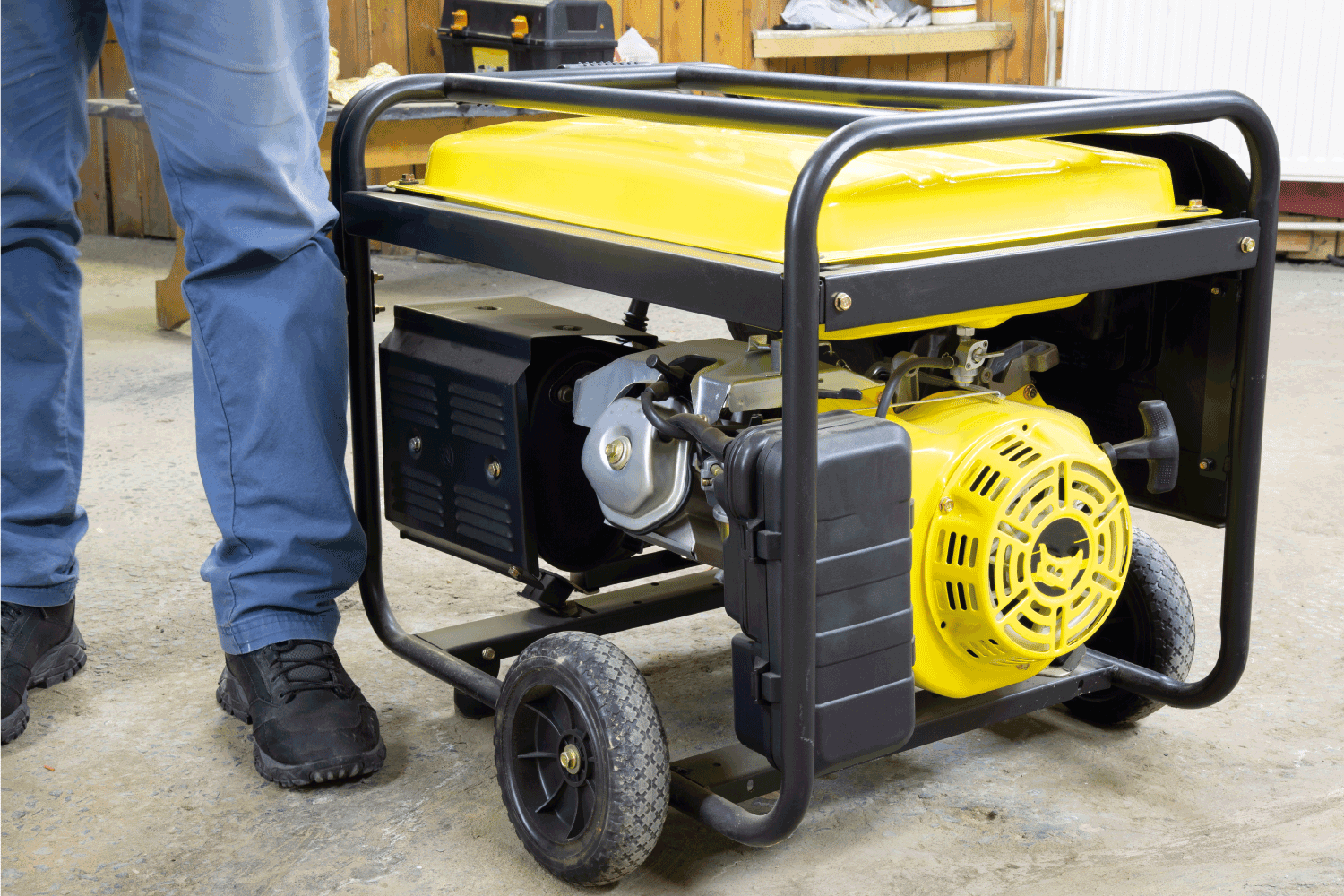
Daily AC Usage
Generators have different charging capacities. Because of this, it is essential to utilize your AC usage fully.
In addition, a generator should not run at maximum capacity for more than 30 minutes. Try to operate the generator at 70% to 80% capacity. Equipment rarely operates at 100% efficiency. Allowing a 20% to 30% safety margin adjusts for the below optimum operation.
Climate also influences how long you will be running the generator each day. If it is sweltering, you may operate the AC and consequently the generator for at least 8 hours each day.
Benefits of Buying the Right Size Generator
Picking the right generator size to power your air conditioner is crucial as it saves you money on the initial investment and operational costs. The bigger the generator, the more you would need to spend upfront and to operate it.
By investing in the correct generator size, you are less likely to overload it, reducing wear and increasing longevity. Additionally, you will have fewer mechanical breakdowns. All of this adds up to extra savings.
Buying the right generator size also decreases the risk of short-circuiting or overheating.
If the generator overheats, it creates a safety hazard since the alternator will also overheat, thus burning out the windings and altering their insulating properties. As the insulation softens, it can melt or catch fire.
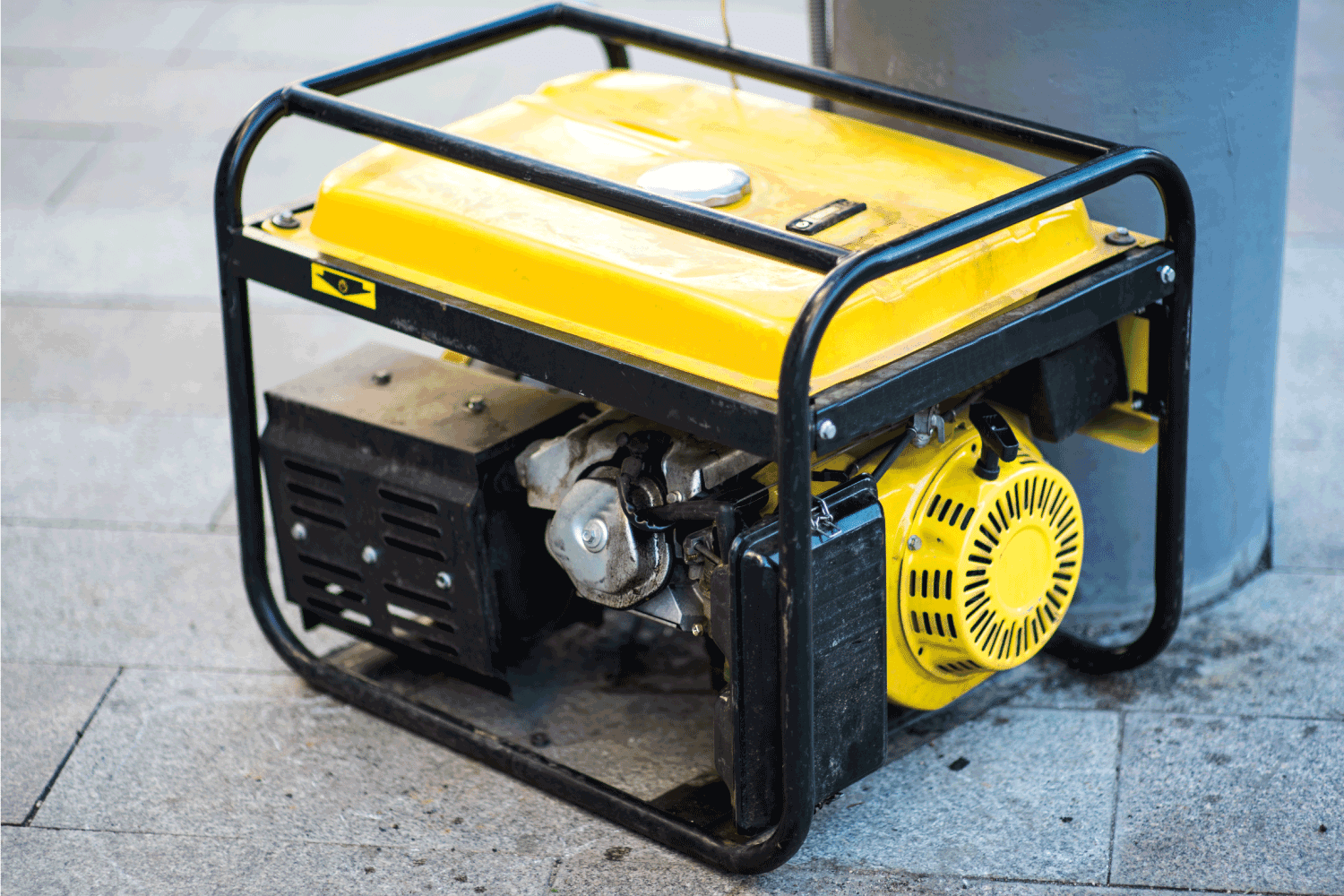
What Room Size Will a 5000 BTU Air Conditioner Cool?
Typically, an AC needs 20 BTU for each square foot of living area. But factors such as the size of the windows and doors and ceiling height may necessitate more BTU for each square foot. You should also consider that air conditioners do not operate at maximum output.
Generally, a 5000 BTU AC can condition the air in a room ranging from 100 to 150 square feet. However, this room size may change depending on the room's exposure to the sun.
If the room has high sun exposure, the cooling requirement increases by 10%, thus limiting the AC's output to 90 to 135 square feet.
Alternatively, if the room has low sun exposure, the cooling demands reduce by 10%. This reduction increases the AC's output to serve 110 to 165 square feet.
The 5000 BTU air conditioners are often used in small bedrooms, guest rooms, or home offices where there are rarely more than two people in the same space at the same time.
You cannot use them in kitchens as you would need to add 4000 BTU to the requirements obtained from calculations based on the kitchen's square footage for them to be efficient.
Drawbacks of Installing a Smaller Than Required AC
If you install a 5000 BTU air conditioner in a room larger than 165 square feet, you will not achieve the comfort you need. Even with the AC running constantly, it will not cool the room since it lacks the capacity to condition the air in your space.
The AC may also create hot spots resulting in uneven temperatures throughout the home. Furthermore, the unit's energy consumption may increase as it overworks to reach the target temperature.
Overworking the AC increases its wear and tear, leading to more frequent breakdowns. The appliance's downtime rises even as the repair and maintenance costs sky-rocket. Moreover, this will shorten its life expectancy, so you'll need to buy a replacement sooner.
How Can You Improve Your Air Conditioner's Efficiency?
The air conditioner is one of the largest energy consumers in the home. Thus, enforcing ways to minimize energy consumption enables you to get the most from your appliance while mitigating expenses.
These tips will offer a starting point on measures you can enforce to improve your air conditioner's efficiency.
Clean Around The Condenser Unit
Dirt reduces the efficiency of your unit. It also bars air intake into the appliance, reducing its cooling capacity. Cleaning the area around the condenser unit enhances airflow, which results in better AC performance.
Keep Vents Clean
Vacuuming dust and other debris from the supply vents helps keep them clear with smooth airflow. With proper air circulation, your AC will keep your home cooler and run more efficiently.
Strategically Position The Thermostat
Keep the thermostat away from sunlight, lamps, bulbs, and other heat-producing appliances. If you position the thermometer near devices that generate heat, the thermostat will assume that the temperatures in your home are higher than the actual readings.
Upon detecting higher temperatures, the thermostat will start your AC, causing the unit to run longer and overwork. You will eventually pay more for your cooling needs.
It would be best to install the thermostat on an interior wall, towards the center of your home, away from windows, air vents, and doors. That way, it can accurately read the temperature levels in your home and run the AC only when necessary.
Insulate Exposed Ductwork
Sealing any exposed ductwork reduces the amount of cool air lost through leaks. Ensure that you use insulating material with a suitable thickness for maximum efficiency.
You can also ask an HVAC expert to thoroughly inspect the ductwork for leaks and repair any gaps discovered during your system's annual maintenance.
Do Not Run Heat Generating Appliances on Hot Days
Avoid using appliances such as dryers and ovens on hot days. These units release warm air into your home, causing your AC to work overtime as it tries to maintain comfortable temperatures in your home.
You can also close curtains and blinds on a hot day to keep sunlight from warming the indoor air.
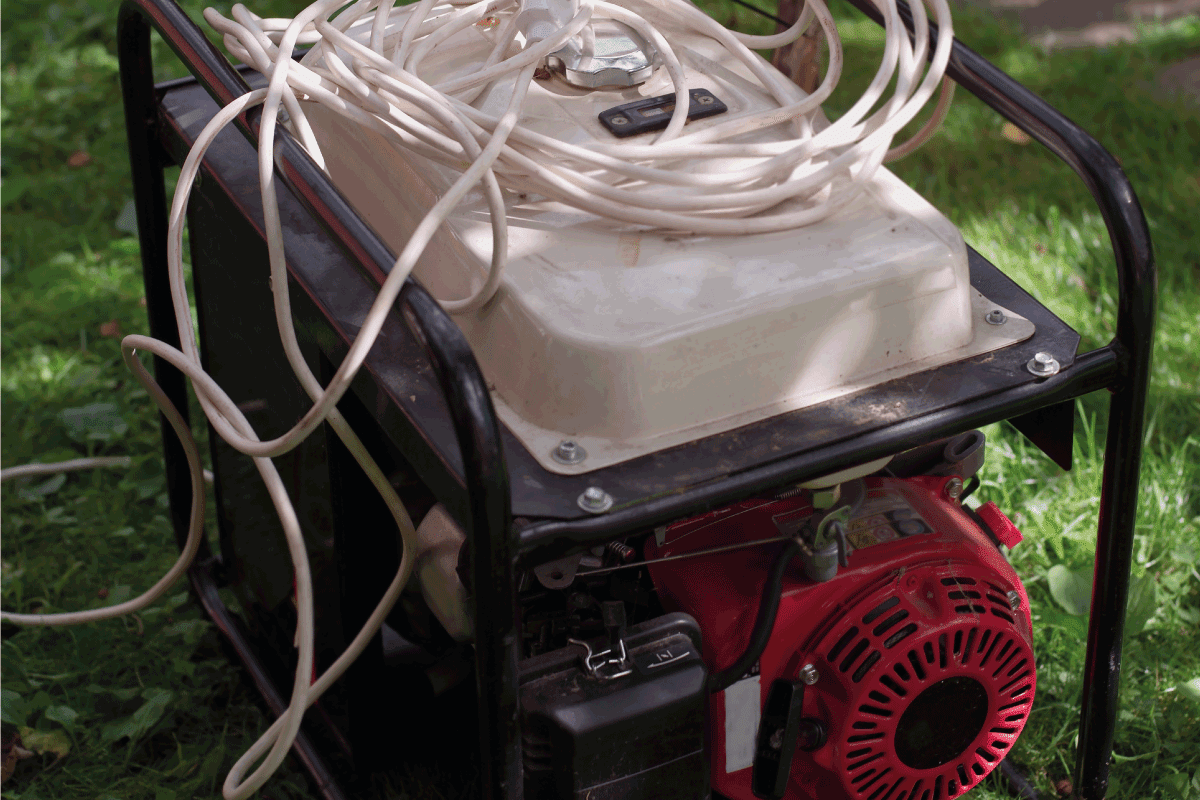
Closing Remarks
Factors such as power consumption and daily usage influence the size of the generator you will need to operate a 5000 BTU air conditioner.
Make sure that you pick a suitable generator size to avoid wasting money or overworking the unit, which would cause the unit to malfunction.
You should also only use the 5000 BTU AC in an area that meets the required square footage. Installing this air conditioner in a bigger space will fail to cool your air and increase its wear and tear, reducing its useful life.
If you found this article helpful, be sure to check out these other great posts:
How Much Power Does A Portable Air Conditioner Use? [By BTU]
